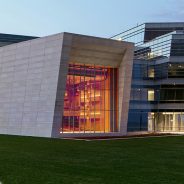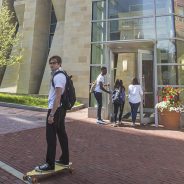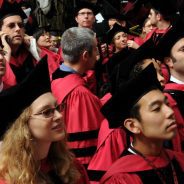Search results for :
How Online MBAs Use Technology to Enable Authentic Connections
Sponsored Content
Technology has dramatically blurred the line between the digital and offline worlds; we can do almost anything online these days, ranging from ordering groceries to exploring Africa to attending college. However, one of the points of debate across nearly all fields is how the online experience compares to the parallel offline one; this has been especially true in online degree programs: Can online degrees provide the same value as their face-to-face counterparts?
The challenge of engaging and preparing students is two-fold for online degree programs. They need to cover the same key topics and transfer the same volume of knowledge as their on-ground counterparts. However, another part of the attraction of top MBA programs is that they not only develop students’ business acumen, they facilitate long-lasting connections that can lead to career opportunities and professional connections. That level of engagement presents a much bigger obstacle than catching someone’s attention long enough to complete a simple e-commerce transaction.
Technology in the Online Classroom: Two Major Lessons Learned
One of the things that makes a great online MBA successful is technology. Of course, if it were just an issue of investing in the latest and greatest tech solutions, every university would have successful digital learning programs. Further complicating things is the boom in technology built to solve this problem; which solution is best for the online classroom, and which will help build skills that will carry over into students’ careers.

After looking at some of the technology decisions at the University of Southern California’s Online MBA program, we found two major lessons for how to be successful with the kind of engagement these programs need to facilitate.
1. Innovate With Purpose
It’s easy to see the concerns over rapid technology evolution, whether you consider this 2015 New York Times article about innovation happening too quickly for businesses to keep up, or William Smith’s Morley, in which he wrote that widely available news and faster travel options would destroy relaxation as we know it, in 1886.
The technology we use will always be changing, whether it’s 1886 or 2186. One of the things that is hard to admit, though, is that the thinkers who said it would be impossible to keep up were right. Particularly at an organizational level, it really is impossible to stay current with every technology innovation that emerges.
The difference between success and failure—in the virtual classroom and in global business—is how they adapt new technologies to their environments.
One example of this in action comes from the University of Southern California’s Online MBA program. There are countless options for encouraging deeper collaboration and facilitating connections in an online setting, including a growing list of business collaboration tools as well as universities who opt to build their own social collaboration platforms. Sometimes, though, the answer is much simpler.
One of the things that stood out from USC’s Online MBA is that, in addition to the classroom sessions and videoconferencing, students chat and connect over WhatsApp. One of the biggest lessons from this experience is the fact that, sometimes, the best solution for a given problem is something students or employees are already using; it just needs to be embraced in a way that supports desired outcomes.
Why it Matters: Both businesses and universities may be reticent to allow important work and collaboration to exist outside of the platforms they control; and, there are certain instances (i.e. regulation) where allowing consumer-grade technology is a poor choice. However, embracing a student or employee-driven approach to collaboration is essential to making it work, particularly in a virtual setting. Rather than try to force students off the tool they’re comfortably using, USC can focus on smarter investments in other areas that are critical to online learning, like high quality video conferencing and learning management systems.
2. Outcomes First, Technology Second
It may seem counterintuitive at first, but the best strategies for utilizing technology don’t start by considering technology—they start by considering desired outcomes. If the goal is to facilitate the creation of real connections in a virtual space, using technology to enable this will need to feel natural and incorporate features that bring some of the same qualities of face-to-face interaction.
For online MBAs, there is a second and critical part to solving this challenge: Increasing students’ familiarity with tools that they will need to use in their professional lives.

For both businesses and higher education institutions, approaching this problem primarily from a technology perspective is the wrong approach. By thinking about desired outcomes, organizations can better guide their technology choices.
For example, with software for videoconferencing, there are myriad options. From a purely technical standpoint, many schools might first consider a solution like Blackboard Collaborate or Canvas’ built-in conference tools because so many already have Blackboard or Canvas for their Learning Management Systems.
These platforms may be enough from a functional standpoint, but, for developing true connections in an online MBA, user experience is an even more critical element of software used for video and teleconferencing. Considerations like these led USC’s Online MBA program to leverage Zoom, a dedicated communications platform, for conferencing in addition to the Canvas LMS for facilitating learning. Zoom lets students see the instructor, as well as their fellow classmates on live video, making it closer to face-to-face interaction than many alternatives. It’s also easier to schedule meetings on short notice with the ability to send calendar invites, offering similarity to the spontaneous brainstorming sessions that might happen in a classroom or office.
Why it Matters: The best solution for a given problem isn’t always the one that comes integrated with the rest of the software organizations already have. Especially for an online MBA, it’s also important to consider technology that has value beyond the classroom, as this will better equip students to succeed in their careers. The second component of this is to think about software that readily integrates with platforms people use in their daily lives anyway. Even if it is just the ability to send a meeting invite over Google Calendar, individual features can make the difference.
The Results: When Technology is Used Effectively
The biggest result of USC’s smart use of technology is that students can and do form real connections that lead to face-to-face interaction. For example, many students organize meet-ups in their area, so that those who live away from campus can still participate in the Online MBA community.
The deeper social connections, coupled with classroom learning and group discussions, also create unique opportunities that would not be as easily made without digital engagement. In USC’s case, one team of students in the recent cohort is planning to open their own business together.
The Bottom Line: Universities have historically struggled to keep pace with technology adoption. Regardless of whether a program is online, offered on-campus or uses a hybrid approach, though, the best MBA programs will stay ahead of the curve by considering outcomes first and avoiding the temptation to innovate without a clear purpose.
To learn more about the USC Marshall School of Business Online MBA, visit the Marshall website.
What are the Best MBA Programs by Specialty?
Each year, U.S. News and World Report looks at the top business schools around the country to decide which offer the best MBA programs. The goal is to help MBA candidates most effectively choose the best MBA degree to help them achieve their goals based on their interests and strengths. The problem is that there are hundreds of programs and it can be difficult to weed out all the noise to get to the information that you want most.
That’s why the U.S. News and World Report decided to break down all of their findings into a more easily consumable ranking. They outlined the top MBA programs by discipline to help you quickly and easily find the school you’re looking for. Each of the schools on the list was chosen based on alumni interviews, schools statistics, research data, and more.
We’ve broken down the results below along with crucial information about each school listed and where you can learn more information.
Kellogg Admissions Director Shares Insights on 2019 MBA Application
Northwestern University’s Kellogg School of Management is one of several leading business schools to release its 2019-2020 MBA application online within the last week. At Kellogg, deadlines for the upcoming admission season are as follow:
- September 19, 2018
- January 9, 2019
- April 10, 2019
To help you get started, Director of Admissions Melissa Rapp provided insight into the 2019 MBA application along with some great advice on how to prepare. We’ve shared some of the most pertinent details below.
Written Essay Questions Remain Unchanged
The Kellogg written essay questions remain the same this year as last. Applicants will need to answer the following two questions.

- Tell us about a time you have demonstrated leadership and created lasting value.
To answer this question, MBA applicants should think about a specific challenge they have faced in their career and how they overcame it. Specifically, Rapp advises applicants to think about their contribution to their organization and the lasting value they created.
- How have you grown in the past? How do you intend to grow at Kellogg?
This question is about looking at both past performance and future behavior. Remember to keep in mind the reason why you’re pursuing an MBA in your answer.
Video Essay Advice
For four years, MBA applicants have been expected to complete a video essay, and this interview season is no different. Rapp recommends using your video essay as your chance to tell your story in your voice. In the video portion, you’ll answer three questions:
- What path are you interested in pursuing? How will you get there?
- Why is this program right for you?
- Randomly generated question about overcoming obstacles.
When answering these questions, Rapp encourages applicants to speak from the heart and to avoid repeating phrases from their written essay. You’ll have a few practice questions to help you get comfortable; then, they’ll dive straight into the official questions. Think of the video portion like an interview more than an essay.
As for the technology, the Kellogg technical team is available 24/7 with questions or concerns, though Rapp says few if any candidates struggle.
Focus on Your Unique Qualities
In this most recent blog post, Rapp also underscored Kellogg’s focus on diversity and inclusion. Specifically, she explained that the school is interested in a broad range of backgrounds, experiences, perspectives, and opinions. So, be confident in telling your story and what makes you unique. That’s what the admissions team wants to hear all about.
To read the full article and learn more about the 2019 MBA application, visit the Kellogg website.
This article has been edited and republished with permissions from our sister site, Clear Admit.
Columbia Finds Surprises That Hurt Advertisers, and More – New York City News
What’s going on in New York business schools this week?
Study by Columbia Business School Finds Search Tools Like Broad Match Can Hurt Advertisers More Than It Helps – Columbia Business School Blog
New research co-authored by Columbia Business School associate professor of business Kinshuk Jerath calls into question the efficacy of search tools like broad match, which automate the process of “figuring out all the possible keywords that consumers might search for.”
According to the article, paid search ad spending will reach nearly $40 billion in the U.S. alone by 2019. Jerath writes, “Tools like broad match have led to too many advertisers competing over the same keywords, because now bidding on keywords is so easy. The result is that the search engines are actually the only real winners.”
In a paper entitled Keyword Management Costs and “Broad Match” in Sponsored Search Advertising, Jerath and co-authors Wilfred Amaldoss from Duke Fuqua and Amin Sayedi of UW Foster found that “broad match is only effective to a point, a threshold driven largely by the accuracy of broad match that is controlled by the search engine, not the advertiser.”
“Anything that makes advertising cheaper creates more competition—and can ultimately hurt your return on investment. “
You can read more of the research here.
Deloitte CEO Cathy Engelbert to Lehigh Graduates: ‘Do What Hasn’t Been Done’ – Lehigh College Business and Economics Blog
Deloitte CEO Cathy Engelbert, Lehigh College Business and Economics ’86 graduate, used her recent commencement address to share three life lessons that stressed to graduates of Lehigh’s 150th Class the importance of “always remembering what matters to them most.”
Engelbert advised students to “do what hasn’t been done” and “find creative, impactful ways of using new technologies for good.” She said, “I encourage you to stay optimistic and play an active, key role in carving the path leveraging your uniquely human skills—like creativity, empathy, communication, and complex problem-solving.”
Her second piece of advice was to “schedule your personal updates,” just as one might update “various devices to ensure they are operating at peak performance.”
Engelbert’s third and “most important” lesson was to “stay anchored on what matters to you most.”
“I’m sure many of you have a purpose you’re passionate about. That doesn’t end today with graduation. You can carry that through whatever you’re going to do next … from graduate school to entering the workforce. There’s a push to come together as social issues grow in depth, severity and priority. I challenge you to take a bold stance and make a difference in your day-to-day work.”
Read the full commencement report here and footage from the ceremony below.
Professor Scott Galloway discusses how Walmart is positioning itself to compete with Amazon – NYU Stern News
NYU Stern School of Business professor of marketing Scott Galloway was recently interviewed as part of a CNNMoney piece on Walmart’s plan to take on Amazon as the country’s preeminent universal retailer, particularly when it comes to online grocery delivery. Galloway writes:
“Walmart is the only firm that has the management, capital and the scale to compete with Amazon. They’ve probably done as good a job of getting off their heels and on their toes as any retailer in the world.”
You can read the full story here.
The Best Healthcare Management Programs in Washington DC
Healthcare management is among the fastest growing jobs in the United States today. According to the U.S. Bureau of Labor Statistics, a 20 percent increase is expected for jobs the field of medical and health service management over the next ten years. Given that the average growth rate for all other occupations is just 7 percent, this reveals a significant boost expected within this field.
Given how quickly this field is growing, jobs in healthcare management can be competitive. One of the best ways to set yourself apart in the job market is with a specialized degree in healthcare management, demonstrating to employers that you have the specific skill set the job requires. If you are eager to join this growing industry, or looking for a career path that allows you to combine a passion for business with a love of medicine, you may want to pursue a degree in healthcare management.
Many business schools offer MBAs with specializations in healthcare management, or offer other options for customizing your degree to gain credentials in the field.
The Top Washington DC Healthcare Management MBA Programs.
George Washington University School of Business
The School of Business at the highly ranked George Washington University offers an online healthcare MBA program, which combines the generalized business foundation learned during the school’s MBA program with healthcare focused electives. The program explores the most important concepts in business and healthcare amidst a rigorous and hands-on educational environment. In addition to earning an MBA in healthcare management, students may also choose to pursue an additional certificate in fields like Clinical Research Administration, Clinical & Translational Research, Health Care Quality, Integrative Medicine, and more.
The online healthcare MBA at George Washington is 55.5 credit hours, divided among core courses (31.5) and healthcare focused electives (24), offered through the university’s School of Medicine and Health. Students may also petition to have 12 of their elective credits made up of GWU graduate-level healthcare courses outside of the medical school.
Just a few of the many healthcare elective courses offered through SOMHS are listed below:
- Patient Safety Systems
- Issues and Trends in Health Systems
- Introductions to Global Regulatory Affairs
- Regulatory Strategy in the Development of Drugs and Biologics
McDonough School of Business – Georgetown University
The McDonough School of Business at Georgetown University takes their healthcare and business education combo to a new level with the dual MBA and MD program. Within just five years, students will graduate with two degrees; one in medicine and one in business.
The program is broken down with different requirements each year, focused primarily on MD courses at the start, but including at least one MBA core course during the evening each semester. Students will take MBA elective courses throughout the fourth and fifth years, eventually completing the Global Business Experience in the final year. Students interested in the joint MBA/MD program at McDonough must be accepted both by the School of Medicine as well as McDonough before enrolling.

Georgetown University’s precious mascot, Jack, shortly after earning his degree at the School of Medicine / Photo via Georgetown
Student testimonials comment on the way the program has shaped their way of thinking and creatively problem solving. “I am confident that much of what I have gained at the business school will aid me in my career as a physician and will certainly enhance opportunities to improve the healthcare system as a physician-leader,” commented Mark Matza, MD/MBA 2014.
University of Maryland R.H. Smith School of Business
While the R.H. Smith School of Business at the University of Maryland does not offer an MBA concentration in healthcare management, they offer students the opportunity to jointly pursue an MBA and a Master of Science (MS) with a Health Services Leadership and Management specialty. The degree is designed to prepare students for a role as an administrator within a health care system, with the ability to make management-level decisions on a variety of fronts, including strategic planning, governance, and finance. The business education provided by the MBA will also provide students with a strong foundation in leadership and innovation that will allow students to take the lead in designing new approaches to healthcare services. Students with this degree could serve in a variety of roles within the healthcare field, such as a chief nursing officer, consultant, finance officer, and more.
The 68 credit program will be completed over the course of four years, with the MBA requirements mostly being completed in the first two years, and the MSN courses in years three and four.
How To Create Your Own Internship, and More – Boston News
Let’s explore some of the most interesting stories that have emerged from Boston business schools this week.
How to Land an Internship That Doesn’t Exist Yet – D’Amore-McKim Blog
The D’Amore-McKim School of Business at Northeastern University recently published an account of how Matheus Dos Santos, DMSB ’19 created his own internship at Brazilian bank branch Banco Bradesco.
Dos Santos, a Brazilian native, sought out an internship at Banco Bradesco as an opportunity to “learn more about the industry” while he spent his summer back home in between his first and second years at D’Amore-McKim.
Dos Santos reports, “When I was talking to them about a summer job, they didn’t have any process in place. They weren’t sure at first how to hire me formally, and since I’ve started, all sorts of people have come up to me to say that I’m the first one the bank has hired for this kind of position.”

AP Photo via Victor R. Caivano
Dos Santos helped Banco Bradesco “develop an online trading platform to reach millennials.” Edilson Fontenele, head of customer experience at Bradesco and Dos Santos’ supervisor, writes that Dos Santos’ appeal was his unique perspective as a “millennial who knows the Brazilian environment and also had exposure to international markets.”
You can read the full article here.
The Big Leap – Sawyer Business Blog
Sawyer Business School student Jennifer Wiens writes candidly about the precise moment she decided to transform her life and career. After being laid off from her job at a Seattle biotech company, Wiens chose to move cross-country to Boston in part to “go where the jobs were” but also because she thought Sawyer “could help me capture that sense of control in my career.”
Wiens simultaneously began her Sawyer EMBA and a stint as Charles River Labs’ global product manager where she coordinated “multiple teams and meeting with clients all around the world.” She writes about how the two fed into each other.
“Because of my Suffolk experience, I don’t feel like I’m out of my element. I’m explaining business concepts to people who’ve been in business for 20 years. I’m teaching them current approaches to certain things.”
Then Wiens pulled another 180 by leaving the Charles Rivers Lab gig. As part of her EMBA capstone course, she created a business strategy and marketing plan for Advanced Dental Sleep Medicine, which offers “alternative, non-surgical ways to reduce sleep apnea.” According to the article, both of which worked so well that the “owner convinced her to leave Charles River Labs and come work for him [as] full-time employee number three.”
Wiens writes, “The company’s gotten a lot of good buzz, so the business is poised to explode and franchise out. And that’s where I come in.”
You can check out the full article here.
3 Steps Toward Safer and Sounder Software – MIT Sloan Newsroom
Deutsche Bank CIO and head of safety and soundness Frédéric Véron recently gave a talk at the MIT Sloan CIO Symposium, where he shared 3 pieces of wisdom for making software “safe and sound.”
Véron said “safe and sound” software is about a “mix of hyper-awareness, good planning and foresight, and learning quickly from mistakes.”
According to the article, “hyper-awareness” involves knowing “how all your software is actually being used day-to-day, ensuring all stakeholders in development understand the full scope of the product, and continuously taking baseline metrics to understand what can be considered normal operating conditions for a system.”
Good planning and foresight entails that “all of the different procedures that will be necessary to maintain the system in production mode need to be thought through ahead of time. You can always bolt it all on later, but it will cost you more money and it won’t be native or work as well.”
Véron advocates “failing and adapting fast” by adopting agile and DevOps. “The whole point of agile is about adopting the philosophy where you break down major efforts into smaller efforts, allowing you to do incremental releases so that you can make a small change, and if it isn’t working you can pull it out of production quickly without impacting the whole thing.”
He elaborated, “Safety and soundness is about ‘How do we make the enterprise safer and more sound, right from the get-go?’ Not just when things happen, but before things happen.”
The full article can be found here.
Five Best Business Schools for Breaking Into Venture Capital
While most MBA graduates looking to go into finance typically choose investment banking, venture capital has become an increasingly popular employment destination in recent years. VC is popular because it’s both lucrative and challenging, offering a unique career path that is deeply involved in the success of startups. Continue reading…
What Are the Fastest MBAs You Can Earn in San Francisco?
Earning an MBA is one of the fastest ways for up-and-coming business leaders to get a jump start on their professional career. And in metros like San Francisco, one of the country’s biggest hubs for startups and entrepreneurship, moving fast enough to get in on the ground level may open the door to life-changing opportunities.
The numbers don’t lie: Top MBA programs in San Francisco like Babson College of San Francisco’s Olin Graduate School of Business boast job placement rates of 82 percent within three months after graduation. The faster you can get that MBA degree in your hand, the faster you can get to that job offer.
Thankfully, many business schools in San Francisco offer accelerated or one-year MBA programs that allow dedicated students to move even faster toward that all-important degree. We’ve rounded up the fastest MBA degrees in San Francisco below.
F.W. Olin Graduate School of Business- Babson College San Francisco
Babson’s F.W. Olin Graduate School of Business offers a one-year MBA program, which covers the same courses and resources as the full-time program but can be completed in just 12 months. Students in the program will take core courses as a cohort, which the program hopes will encourage strong professional connections throughout the year the students are together. Electives, however, can be taken alongside students in the two-year MBA and evening MBA programs, further expanding their professional network.
Students in the one-year MBA will also take part in Babson’s Signature Learning Experiences, experiential courses that offer hands-on experience through simulations, self-reflection, and action-learning projects.
Lucas Graduate School of Business- San Jose State University
The accelerated early-career MBA at San Jose State’s Lucas Graduate School of Business can be completed in as little as 12 months. An added bonus of the program? Not only can the accelerated MBA be completed in half the time of the school’s two-year MBA program, but it also costs significantly less. The program is slightly more intense than the full-time MBA, however, with two to three courses per session, as opposed to just one or two.
The early-career MBA at at Lucas is designed for students in the first five years of their professional career. Students can choose to pursue the degree full time, part time, or on the accelerated track, each of which allows students to pursue an internship. The program is great for students looking to change their career path- no professional experience is required to apply, and although a four-year bachelors degree is necessary for acceptance, students do not need to have majored in business to be considered.
San Francisco State University College of Business
The San Francisco State University College of Business offers a number of potential ways to earn an MBA, including flexible, fast-track and bridge options. Each of these three programs can be completed in as little as 12 months.
The flexible MBA is geared toward individuals who work full time but also plan to pursue their degree on a full-time basis. The flex program allows students with a four-year bachelor’s degree to design their own schedule, with classes typically taking place in the afternoon and evening. Depending on the schedule each student creates, the program can be completed in anywhere between 12 and 36 months. For students in the fast-track program, the whole process of earning an MBA is simply made faster. Just 10 courses are required to graduate, typically taking around one year to complete. Finally, international students looking for an accelerated program in the States will find SFSU’s bridge MBA to be a perfect fit. The bridge MBA is tailored to those with a three-year bachelor’s degree from a non-U.S. university and gives students the opportunity to complete six courses at SFSU over the course of the year before transferring the courses to the university’s MBA program.
Executive MBA Programs
For those with several years of work experience looking to quickly complete a degree, the best path may be an executive MBA program. Built around the lives of busy, working professionals, and designed to be flexible and fast, most executive MBA programs can be completed in well under the typical two-year length of most full-time MBAs. At top San Francisco universities like the Haas School of Business at UC Berkeley, an executive MBA can be completed in as little as 19 months while learning from the same world-renowned Berkeley faculty as students in the full-time program.
Toronto News: Schulich Grad Becomes CEO, Ryerson Promotes Women in Business, and more…
Toronto business schools have seen another exciting week of community contributions from faculty and graduates. We’ve laid out some of the high points.
We Need to Talk About Career Gaps—LinkedIn
This week, Rod Bolger wrote an article for LinkedIn on the “RBC Opt-In: Women’s Career Continuation Program: at Ryerson University’s Ted Rogers School of Management. The article’s author is also the CFO of RBC, the company that sponsors this program. The Opt-In program allows women who have stepped away from their careers to continue their education and regain their footing in the workforce. The program allows these women to network and further their education on topics like leadership and personal branding.
“At RBC, we believe an inclusive workforce spurs innovation, and that in turn fosters a strong economy and helps our communities prosper. The bottom line: we need women—as half of the world’s talent pool—to be able to fully participate in the workforce. We can each do our part to listen and learn from those who have the diversity of perspective and experience that a career gap brings.” -Rod Bolger
Read more about the RBC Opt-In: Women’s Career Continuation Program here.
Sprout Wellness Appoints New CEO—HRT News Desk
Sprout Wellness Solutions, which provides resources for ensuring holistic employee wellness in corporate settings, has announced that Andrew Zimakas will take over as CEO. Zimakas has been serving as interim COO at the company for a number of months. Zimakas earned his MBA at York University’s Schulich School of Business. After earning his MBA, he worked in senior positions at several large companies, including Microsoft and LoyaltyOne.
“I’m incredibly excited to be leading such a talented and committed team at Sprout; It’s a great fit, given that we are a purpose-driven organization with a leading-edge solution that is at the intersection of two of my passion areas: technology and health and wellness.”- Andrew Zimakas
Read more about Sprout Wellness Solutions here.
China Poised to Take Lead in Artificial Intelligence Race—The Globe and Mail
Avi Goldfarb and Daniel Trefler, economists at the University of Toronto’s Rotman School of Management, have written a soon-to-be-published paper tackling questions about AI’s impact on the future of international trade. The researchers note that China is fast becoming an AI giant with Silicon Valley-level tech advances and growth.
Though the researchers believe China’s innovations will be useful to Canada, they also anticipate harmful consequences as a result of China’s rise to AI superpower. For example, there may be no room for AI companies from smaller countries like Canada once China achieves dominance.
Read more about China’s role in AI here.
Healthcare Management MBAs in Los Angeles
California’s healthcare systems are under a lot of stress. According to the Orange County Register, the state’s healthcare staffing shortages are projected to widen as the population grows and doctors retire. Continue reading…
Schulich Professor Honored, and More – Toronto News
This week has seen strides for Toronto’s business schools, so lets take a look at some of the highlights.
Serving the Public Good – Corporate Knights
Ed Waitzer, professor at the Osgoode Hall Law School and York University’s Schulich School of Business in Toronto, is the newest recipient if the Corporate Knights Award of Distinction.
In addition to teaching corporate law at York University’s Schulich School of Business, Waitzer is on the advisory board of the Pontificia Universidad Católica de Chile’s corporate governance centre, and frequent lecturer at various universities. At 64, Waitzer remains active and continues to challenge his students and peers to question “compliance mentality,” and decipher what it means to do the right thing in any given situation.
“Ed has spent much of his life advancing the legal foundations for corporations and pension funds to better serve the public good. He’s brought a high level of credibility to interpreting a complex body of law in ways that expand the concept of fiduciary responsibility and allow business leaders to use their power to better serve the interests of a wide range of stakeholders. He makes it less possible for a corporate or pension board to shut down, say, discussions about blackballing child labour or coal because, ‘We have a fiduciary duty to our shareholders.’” -Toby Heaps, Corporate Knights CEO and Publisher.
Learn more about Waitzer’s life and career here.
Ivey MBA Association Welcomes New President – News@Ivey
Western University Canada’s Ivey Business School’s MBA association has elected Marika Marty as its president. Marty was elected by the MBA class of 2019 and will be the first president the association has seen in over 15 years. As president, Marty will represent the student body and facility unity in her class.
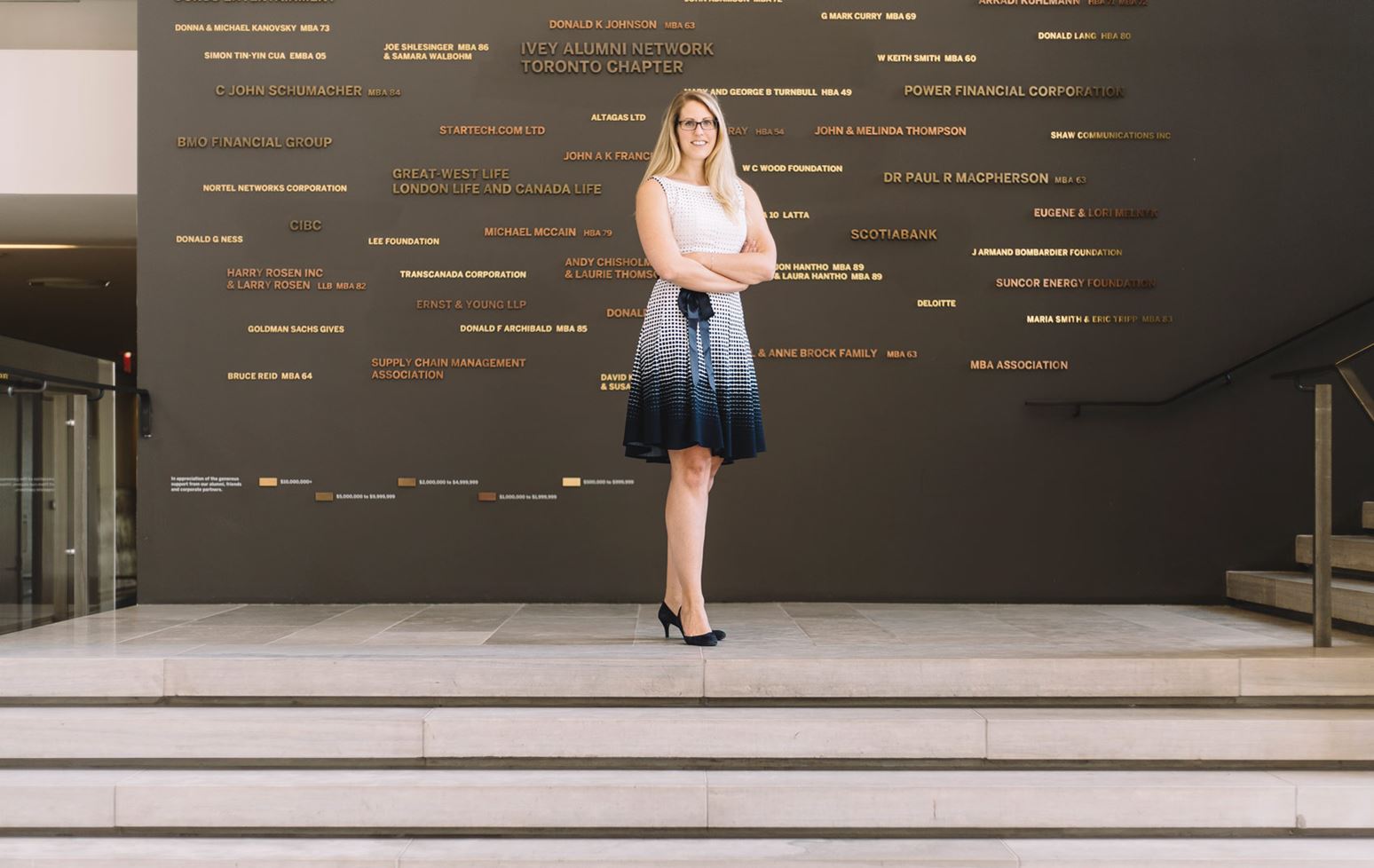
Marika Marty, ’19 MBA / Photo via ivey.uwo.ca
The new MBAA said that initially she put off even applying for her MBA for years, thinking that she would have to choose between a career and a family. However, she soon realized this thinking was flawed and chose to challenge herself. “As women, sometimes we sell ourselves short. Being able to embrace opportunity is the real challenge,” Marty said.
Read more about Ivey MBAA’s new president here.
The Debate In Canada Over Paying Plasma Donors – Policy Options Politics
In a recent article in Policy Options Politics, the need for plasma and the choices facing policy-makers has come to a face.
The paper—co-written by Nicola Lacetera, associate professor at the University of Toronto’s Rotman School of Management, and Mario Macis, associate professor at Johns Hopkins University’s Carey Business School—notes that over 80 percent of plasma used to treat patients in Canada is brought in from the U.S. Both the US and Germany can provide a significant amount of plasma, as their laws allow for the creation of private collection establishments as well as compensating donors for the time commitment and discomfort that accompanies donation, but the majority of Canadian provinces prohibit the payment of donors and establishing for-profit collection centers.
In the exploration of the issue, Lacetera and Macis cite the problems with paying plasma donors as well as the benefits (greater incentive to donate, thus less reliance on foreign imports). For example, paying donors could lead to an increase in tainted donations from people who are not healthy, and are just trying to earn money quickly.
Read more about options for increasing domestic plasma donation in Canada here.
MBA Job Destinations: Wolters Kluwer
The average person may not know what international information services firm Wolters Kluwer does, or even how to pronounce it But when it comes to post graduate job placement, every MBA knows (or should know) the Dutch company’s name, and its status as a top MBA recruiter. Continue reading…
The Lehigh Expo, Columbia Stats, and More – New York News
Let’s explore some of the most interesting stories that have emerged from New York business schools this week.
Lehigh Expo Showcases Students’ Creativity – Lehigh College of Business & Economics Blog
As part of the recent Lehigh University College of Business and Economics School Expo, nearly 600 Lehigh students across all disciplines showcased projects, many of which were “outcomes of capstone courses that leverage intense study in a chosen field.”
One project of note was Danielle’s Buddy, a device developed by eight Lehigh students, including Emily Randolph, ’19 to “locate children with autism who might become lost.” According to the article, the device, which comes equipped with GPS, WiFi, and Bluetooth, attaches to “the pants or shoelaces of a child with autism and sends a signal to caretakers if the child wandered from a particular area or became lost.”

Students in attendance at the recent Lehigh Expo / Photo via lehigh.edu
Learn more about more exciting Lehigh Expo presentations here.
New Columbia Business School Study Uncovers Significance of the Mortgage Market as a Barometer in Presidential Elections – Columbia Business School Blog
In a study that has the potential to influence how the American public views “the relationship between the economy and national elections for years to come,” Columbia Business School professor Charles W. Calomiris and Georgetown’s Alexis Antoniades recently published research that finds that the mortgage crisis of 2008 was “five times more impactful on voting behavior than rising unemployment.”
Professor Calomiris writes:
“We all know that Americans vote with their wallets. When times are tough, incumbents are punished at the ballot box, and when America’s economy is thriving, those in the White House are often rewarded. This new research shows us that when it comes to mortgage markets, that’s not necessarily the case.”
Read more about the duo’s groundbreaking research here.
Columbia Business School Reveals 2018-19 Essays and Deadlines – MetroMBA
The incoming batch of MBA deadlines and essay questions for the newest class of Columbia Business School grad students has been officially revealed.
For admission during the 2018-19 academic year, students must answer the following questions:
Goal: What is your immediate post-MBA professional goal? (50 characters)
Essay #1: Through your resume and recommendations, we have a clear sense of your professional path to date. What are your career goals over the next 3-5 years and what, in your imagination, would be your long term dream job? (500 words)
Essay #2: How will you take advantage of being “at the very center of business”? CBS urges those undertaking essay number two to watch this video from Dean Glenn Hubbard (250 words).
Essay #3: Please provide an example of a team failure of which you have been a part. If given a second chance, what would you do differently (250 words)?
Optional Essay: What else would you like to tell the Columbia admissions committee? You can use this space to provide your explanation if there any areas of concern in your own academic or personal history. This essay does not need to be traditionally formal and can include bullet points (maximum 500 words).
Check out the upcoming MBA deadlines for CBS here.
Women Leaders Headline 2018 MBA Commencement Addresses
With spring fully in sway, classes have come to an end on many leading business school campuses, and commencement activities fill weekend after weekend from now through June. The roster of speakers top schools invite to send their MBA graduates off into the world can be revealing.
Graduation speakers are typically invited to impart hard-earned wisdom and present words of encouragement to MBA classes, and this year is no exception in that regard. More exceptional, though, is the number of women delivering the headlining speeches.
Sallie Krawcheck, CEO and Co-Founder of Ellevest at NYU Stern
NYU’s Stern School of Business selected Sallie Krawcheck to headline its 2018 Graduate Convocation ceremony on Friday May 18.
Krawcheck is currently CEO and co-founder of Ellevest, an investment firm designed for women, which “aims to serve women [investors’] needs…using an algorithm tailored specifically to women’s incomes and life cycles.”

Sallie Krawcheck / Photo Ellevest
The company has racked up a slew of accolades, among them inclusion in both Nerdwallet’s “Best Robo Advisors of 2018” and Entrepreneur Magazine’s “100 Brilliant Ideas of 2017.”
In a preview of her speech, Krawcheck spoke about our “tumultuous and confusing times,” challenging individuals to evaluate their own personal “ideas of ethical leadership and who we really are,” as well as the ways in which we consider our careers as they relate to our responsibility to the world around us.
“We have to decide if we’re going to be that person who does the right thing. We have to decide if we’re going to commit to equality, to diversity, and to using the power of business to make the world a better place.”
Vice Chairwoman of Morgan Stanley Carla Harris at Harvard Business School
On May 23, Harvard Business School welcomed Morgan Stanley Vice Chairwoman Carla Harris, whose distinguished career spans three decades.

Carla Harris / Photo via Fast Comapny
Harris has been named to Fortune’s list of the “50 Most Powerful Black Executives in Corporate America” and its “Most Influential List” and appeared in similar lists in wide-ranging publications including U.S. Banker, Black Enterprise, Essence Magazine, and Ebony.
Harris has also received honorary doctorates from seven different institutions including Marymount Manhattan College, Jacksonville University, and Simmons College.
Instagram COO Marne Levine at Michigan Ross
One of the first commencement addresses of the season took place on Friday, April 27, at Michigan’s Ross School of Business, where Instagram’s Chief Operating Officer Marne Levine delivered a rousing headlining speech.
Ross Dean Scott DeRue introduced Levine with remarks about her inspirational career and commitment to her work’s impact on society. DeRue added that he sought to invite someone “who role models the leadership we aspire to.” He also praised Levine’s “transformative and positive impact on how we live, work, and interact with each other.”

Marne Levine / Photo via Collective Hub
With more than 700 million users worldwide, Instagram has become an iconic brand due in no small part to Levine’s efforts to scale the company’s business and operations at a global level.
She has been COO at Instagram since 2014 and before that served as VP of global public policy with parent company Facebook. Levine’s roots, however, are in the political arena: She worked in the Obama administration as chief of staff of the National Economic Council, worked under Harvard President Larry Summers, and began her career in the Department of the Treasury during Bill Clinton’s presidency.
You can watch Levine’s speech below.
This article has been edited and republished with permissions from our sister site, Clear Admit.
Hot MBA Jobs: Venture Capital Associate
If you’ve ever used an app like Uber or Snapchat, odds are you’ve benefited from the work of a venture capital associate. Through skills like financial modeling, evaluations, and a little bit of luck, venture capital associates find ‘the next big thing’ and provide the money to make it happen. And though not all of these skills can be taught, top venture capital firms are looking to business programs to find the perfect candidate.
For students looking to join the venture capital industry, the path isn’t always an easy one. The level of experience required in the field means that very few students find venture capital associate positions straight out of their MBA programs. This doesn’t seem to deter those who are ready to work for it, however. Last year, private equity was ranked as the second-biggest employer for MBA graduates at the Harvard Business School.
Before you get started on the road to becoming a venture capital associate, let’s take a look at what the path to your dream job might look like.
The Venture Capitalist Job Role
Venture capital (VC) firms take on the risky but often lucrative job of searching the startup world for the next big thing. In exchange for providing capital infusions to startup companies in the early stages of their business, venture capitalists receive both oversight and ownership in the company.
For associates at venture capital firms, the job primarily involves sourcing new deals—setting up meetings with entrepreneurs and companies to find prospective investments—and supporting existing ones. As most roles in financial analysis go, VC associates are responsible for supporting all aspects of an investment, from the initial sourcing, modeling, and execution of a deal.
The exact type of work done by a VC associate may be determined by the type of for it is. For firms more focused on funding startups in their early stages, the associates work may be more concentrated on sourcing, while firms working more on late-stage financing will likely require more diligence and modeling from its associates.
Venture Capitalist Salary
While the exact roles of a venture capital associate may vary widely with the firm and its specialization, the general trend shows VC work to be an incredibly lucrative career. In 2016, graduates from top MBA programs like Stanford GSB and Harvard Business School joined VC firms at an average salary of $175,000.
According to Payscale, the average salary across all education levels for an associate at a venture capital firm is $92,067. The level of experience can make a big difference when it comes to the venture capital associate role, as well. Mid-career professionals in this role make on average 24 percent more than the national average, and experienced professionals up to 51 percent more.
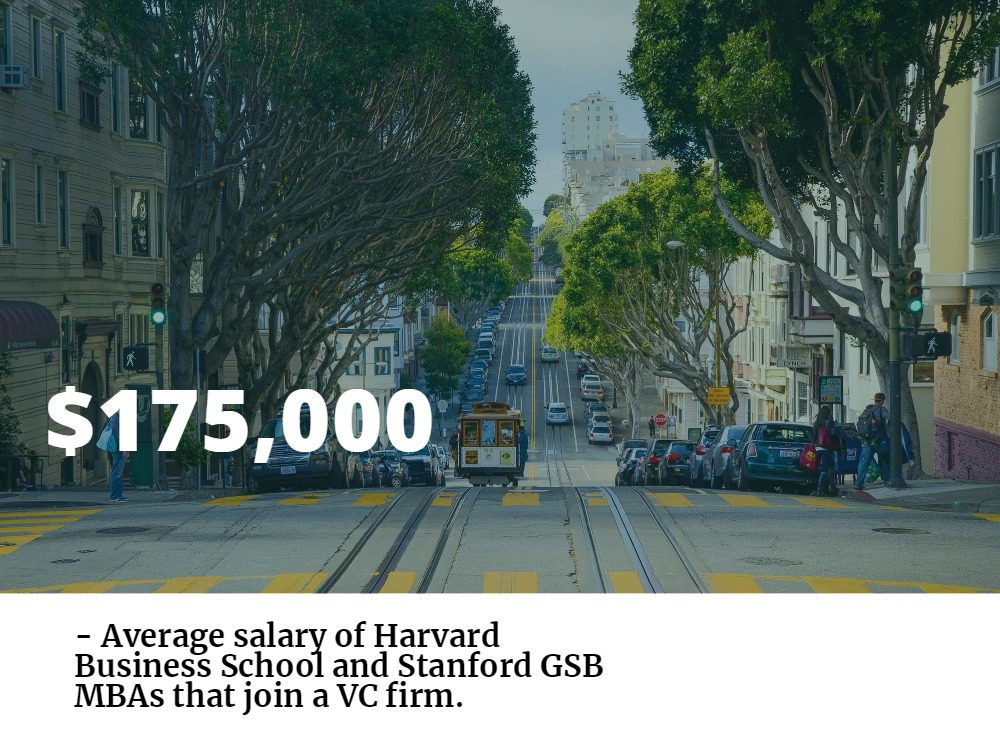
Where Do Venture Capital Associates Work?
Venture capital firms can be found throughout the world in a variety of fields, leaving a wide range of opportunities open to up and coming VC associates. Certainly, studying and working near concentrated start up hubs like the Silicon Valley in California or the UK’s Silicon Fen can help boost an MBAs ability to get their foot in the door.
Still, a quick look at open venture capital associate positions open at the time of writing reveal diverse offerings spread throughout the country, from Palo Alto, CA to Philadelphia, PA to Durham, NC. MBAs looking to pursue a role in venture capitalism may also look for roles that allow them to pursue other areas of business they are passionate about, since VC firms are typically specialized in the type of startup they will invest in, be it fintech, health science, and other various fields.
Some of the world’s top corporations also have venture capital firms that will invest in companies related to their work. This includes companies like Google, Intel, Salesforce, Johnson & Johnson, and more.
The Venture Capital Associate Education
VC firms looking for associates are likely looking for MBAs who have had some previous experience on the workforce. While it’s not impossible for those without MBA degrees to begin as associates, opportunities for advancement to a partner level role are typically unusual without one. Typically, pre-MBA associates are expected to only work two to three years at a firm and then move on.
For post-MBA associates, it’s expected that these individuals will be working towards a partner level position. Firms will be looking for candidates with strong records in analysis who can demonstrate a deep understanding of markets and industries. Given that even MBA graduates will be expected to have a certain level of experience before joining a VC firm, these roles can be incredibly competitive. On-campus recruiting is uncommon for these firms, and typically only graduates from top level MBA programs are recruited to these positions. Basically, if you are determined to enter the venture capital industry, you will not only need an MBA education- you will need to prove you have the best MBA education.
The Top VC MBA Programs
To join the incredibly competitive field of Venture Capitalism, MBA graduates need a demonstrated record of financial analysis skills and a degree with the reputation to back it up. Some of the top schools for those looking to enter the VC or private equity fields overlap with some of the highest ranked MBA programs in the world. Schools that have strong relationships with investment banks and those with strong finance programs will likely offer the most opportunities for students looking for careers as VC associates. Some of the top schools for the field are listed below:
- Booth School of Business – University of Chicago: The full-time MBA program at University of Chicago’s Booth School of Business has a strong focus on venture capital and private equity through the Polsky Center for Entrepreneurship. The program provides strong networking opportunities for their MBAs through student organizations like the Entrepreneurship and Venture Capital (EVP) Group. The group offers career development, networking, activities, and speakers covering the most important topics in venture capital today.
- Kellogg School of Management – Northwestern University: MBA students at the Kellogg School of Management will find a huge focus on venture capitalism through the school’s Heizer Center for Private Equity and Venture Capital. Part of the center is the school’s Venture Lab, an experiential learning course that allows students hands-on experience with a quarter-long internship at venture funds, incubators or start-ups.
- Harvard Business School: The top-ranked Harvard Business School has one of the highest success rates in the world for students interested in venture capitalism. In 2015, roughly 14 percent of HBS graduates went into positions at private equity or venture capital firms. Organizations like the Venture Capital & Private Equity Club– which provides a speaker series, career treks, and an annual conference—allows students to get acquainted with the industry long before graduation.
Top MBA Internship Opportunities in the London Metro
As a center for global commerce and business, London is one of the top cities in the world to earn an advance business degree and secure an MBA internship. Continue reading…
The Fastest MBA You Can Earn in Los Angeles
Los Angeles may not be typically associated with the break-neck pace of life like New York or Washington DC, that doesn’t mean your business school career has to be slow there. A fast MBA is becoming an increasingly large priority for new MBA students throughout the U.S., and, luckily, Los Angeles has plenty of fast options.
With businesses constantly growing in the city (LA added 6,400 new jobs just last April), the faster MBA students can get their degree in hand means the faster they can get to work. Not to mention that accelerated or shortened MBA programs usually mean spending less money on tuition and living expenses while in school—minimizing the amount of time students will have to forego an income.
We looked at some of the fastest MBAs you can earn in Los Angeles, with some unique programs taking as little as 12 months to complete. These MBAs will allow you to get quickly down to business without sacrificing the quality or integrity of the program.
Finding a Fast MBA in Los Angeles
Marshall School of Business – USC
The USC Marshall MBA is one of the top ranked programs in the country, and with the One-Year International MBA for Mid-Career Professionals (IBEAR MBA), you can have that degree in your hand in just 12 months. The program, which is designed for mid-career professionals looking to expand their leadership opportunities in global business, provides career development opportunities, personalized career plans, and plenty of chances to explore the world.
The program is truly global and the average class size of 55 can represent anywhere from 12-15 countries. Participants, with an average of 11 years of professional experience, come from a wide range of academic backgrounds, including those with undergraduate majors in computer science, science & engineering, and even the humanities. These mid-level professionals can seriously minimize the amount of time they must take away from work, and in the process gaining an IBEAR alumni network of 1800 across 60 countries.
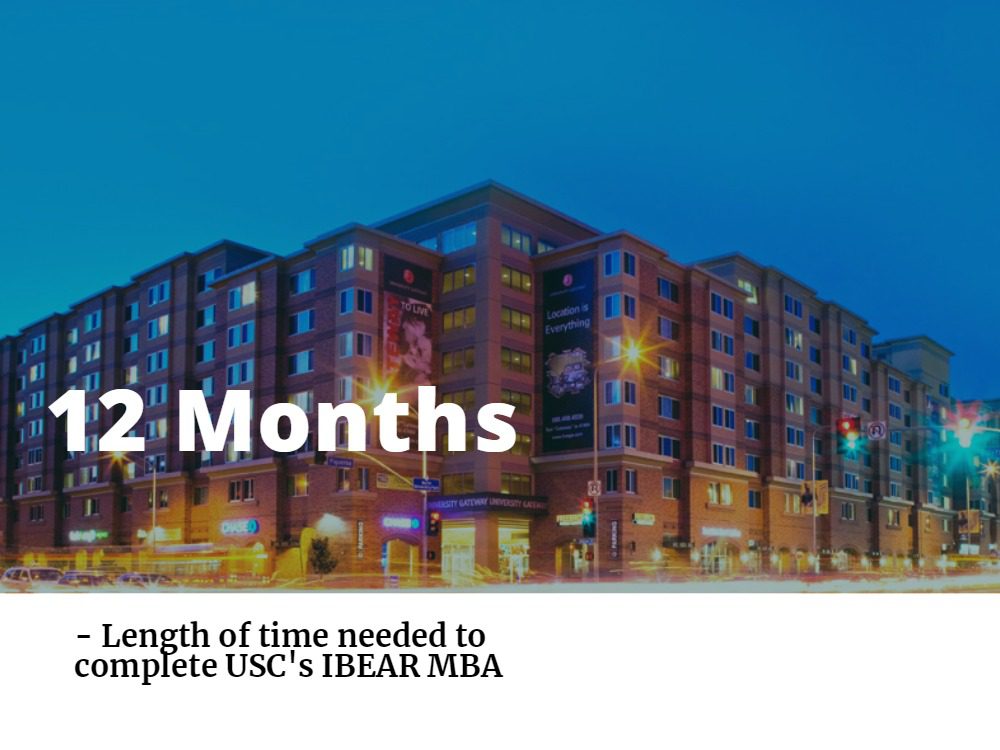
Mount Saint Mary’s University, Los Angeles
The Mount Saint Mary’s MBA program is designed to create effective global leaders who are trained in value-based decision making to bring real and impactful change to the businesses they lead. And the best part? The program takes just 18 months to complete. One of these semesters consists of “Foundations” courses for business leaders just starting out, and may be waived for candidates that have taken similar courses during their undergraduate studies, which may even further reduce the program’s length.
The Mount Saint Mary’s fast MBA is a unique program that centers itself around theme-based models, combining business disciplines like marketing, law, or finance, to give students a broader view of the interdisciplinary nature of business. The 18-month program also includes a final project that will require teams of students to partner with a “real world” organization to solve their business problems.
Argyros School of Business – Chapman University
The Professional MBA program at Chapman University’s Argyros School of Business allows students to customize their degree and move through the program at their own pace. For dedicated students, the program can be completed in as little as 21 months. The class schedule is flexible, which allows students the chance to move at their own pace throughout the program, choosing between both evening and daytime courses. Students may also choose a specialization in which to focus their degree, such as marketing analytics, entertainment, and global business, among others.
Even though the Chapman Professional MBA is flexible and at times fast-paced, the university does not compromise in quality and students will have the same benefits available to them as those in more traditional programs. Students in the Chapman MBA program will be taught by professional and renowned faculty, have access to the university’s career services department, and even have opportunities to travel around the world.
CHECK THIS OUT: Here are the Los Angeles Internship Opportunities You Need to Know
California State University, Long Beach College of Business Administration
The Accelerated MBA program at California State University, Long Beach is designed for young professionals with little experience in the business world. Focusing on entrepreneurship and innovation, the program will train these up-and-coming business leaders in how to bring new products to the market, identify business opportunities, and manage small business ventures.
The Accelerated program at CSULB can be completed in as little as 13 months, allowing students to jump back into work with an MBA on their resume just over a year after they start. The program is also heavily centered around internship experience, which will allow students to gain crucial hands-on experience while earning their degree, and get closer to the school’s objective of ensuring every student has a job offer by graduation.
Anderson School of Management – UCLA
The UCLA-NUS Executive MBA, offered jointly through UCLA’s Anderson School of Management and the National University of Singapore Business School, can be completed in just fifteen months and results in two fast MBA degrees from two of the world’s top business schools.
If you are looking for a truly global degree—and the international experience to back it up—this could be the perfect degree for you. Every three months, your cohort of students from around the world will gather for two weeks at locations from Los Angeles to Shanghai and anywhere in between.
Ivey Professor Honored, and More – Toronto News
Professors from some of the Toronto metro’s finest business schools have littered (definitely not literally, in the case of environmental education pioneer Tima Bansal) news headlines this week. Let’s take a look at some of the highlights.
Ivey Professor Tima Bansal Honored for Innovative Teaching – News@Ivey
Tima Bansal, professor at Western University Canada’s Ivey Business School, has been tapped to receive an Ideas Worth Teaching award. During her time as Director of both the Network for Business Sustainability and the Centre for Building Sustainable Value, Dr. Bansal has integrated sustainability into every part of Ivey’s MBA experience.
Where many programs have sustainability electives, Dr. Bansal has elected to co-teach the core MBA courses, so that sustainability practices are not seen as separate from the fundamentals of business education. Bansal was one of 20 winners who will be honored at Working Towards Shared Prosperity: An Academic-Executive Dialogue in Ann Arbor, Michigan this October.
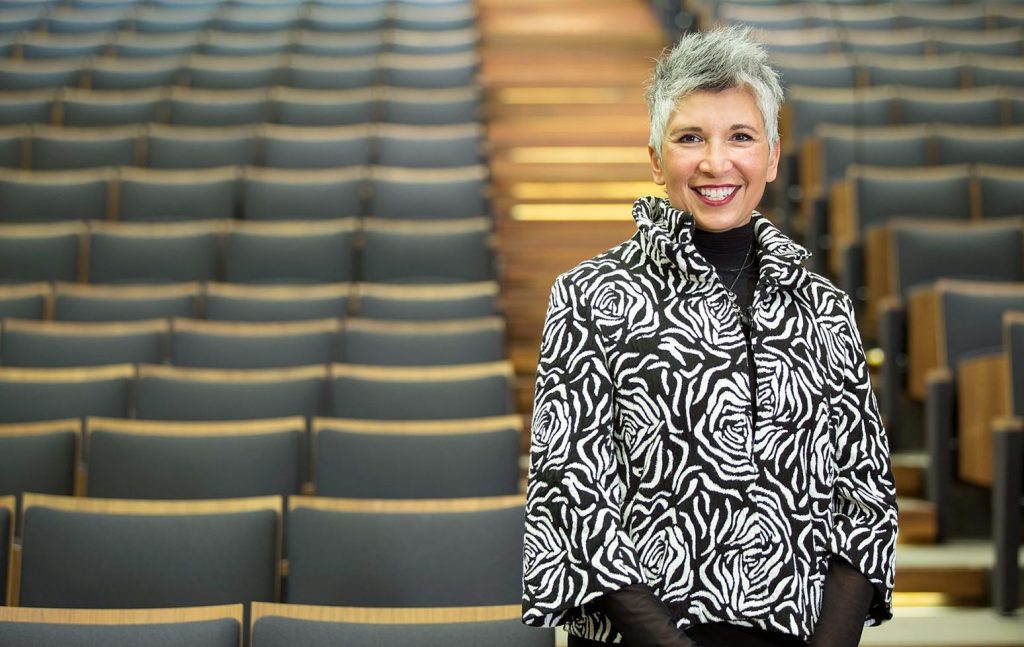
Professor Bansal / Photo via ivey.uwo.ca
Read more about Dr. Bansal’s teaching methods here.
Behavioral Economics Expert at University of Toronto’s Rotman School Receives A Canada Research Chair – EurekAlert!
The Canadian government has announced that Dilip Soman, professor of marketing at University of Toronto’s Rotman School of Management, will serve as the Canada Research Chair in Behavioral Science and Economics. Soman is the Director of Behavioral Economics in Action at Rotman (BEAR), wherein he supervises the use of research findings to help tackle social problems. A recent press release detailed Soman’s work, saying:
“Prof. Soman is a world leading researcher in the area of behavioural economics and its applications to consumer wellbeing, marketing and policy. His work combines insights from psychology and economics to better understand how individuals make decisions.”
As a Canada Research Chair, Soman will have the opportunity to aid in and supervise important research and help train future leaders who show promise.
You can read more about professor Soman here.
How Our Collective Narcissism Explains Everything from Trump and Brexit to China’s Rising Dominance – The Globe and Mail
The Globe and Mail recently released an article that featured research from Russell Belk, a marketing professor at York University’s Schulich School of Business. Belk’s paper, which was published in the Markets, Globalization & Development Review, focused on the theory of “collective narcissism” as it pertains to current world events.
According to Dr. Belk’s work, the nationalistic collective narcissism that led to the Brexit vote in the UK, President Trump’s 2016 election in the United States, and China’s rising global presence is rooted in the belief that others are impeding a nation’s potential for greatness.
“Brexit and the election of Trump both relied on a particular type of nationalistic appeal to collective narcissism—an exaggerated emotional belief that the nation’s greatness is being undermined by other nations and other people. This tendency is catered to by appeals to make the nation great again by shutting borders and embracing isolationism while scapegoating refugees and immigrants. The rise of jingoistic leaders like Trump, Putin, and Erdogan can be explained by such appeals.”
Dr. Belk also explains that China’s move toward globalism is also tied to collective narcissism, as the country is expanding its reach while “rejecting multiculturalism.”
Read more about Dr. Belk’s paper here.



